Hollywood may look glamorous from the outside, but for many actors, it’s a completely different story behind the curtains. Over the years, some of the biggest names in the industry have decided to speak out about the darker side of show business. It’s about personal experiences of being silenced or pushed out for speaking up. By speaking up, these actors challenge the culture of silence that has long been part of Hollywood. Their honesty forces the industry to confront its flaws and leaves fans with a better understanding of what really happens off-camera.
1) Joaquin Phoenix
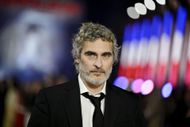
Joaquin Phoenix has openly criticized Hollywood for being fake. In his 2020 Oscar speech for Joker, he talked about the need to focus on real issues like diversity and the environment. He called out the industry for being self-centered and out of touch. Phoenix has also said he finds award shows shallow and unimportant. His comments made people question whether Hollywood cares more about appearances than actual change. By saying what others avoid, Phoenix has become one of the few actors willing to speak the truth about the industry.
2) Megan Fox

Megan Fox has talked about how Hollywood treats women as objects. In 2009, she shared how directors would focus on her looks instead of her talent. In 2019, she explained how this caused her emotional pain and made her question her worth. Fox said her role in Transformers showed how little respect actresses often get. She raised awareness about sexism in the film industry by speaking up. Her honesty gave other women the courage to talk about their own experiences and demand better treatment.
3) Brendan Fraser

Brendan Fraser said that in 2003, Philip Berk, a leader of the HFPA, groped him. Fraser said this moment changed his life and career. He spoke about it in 2018 and explained how the incident made him feel ashamed and isolated. Fraser also believed he was blacklisted for not staying quiet. His story became part of the larger #MeToo conversation, which exposed abuse in Hollywood. By sharing what happened to him, Fraser helped others see the need to hold powerful people accountable. His career saw a comeback in 2021.
4) Rose McGowan

Rose McGowan called out Harvey Weinstein in 2017 for sexually assaulting her in 1997. Her story was one of the first to be published during the #MeToo movement. McGowan did not just focus on Weinstein; she also spoke about how the system protects predators. She faced backlash for her actions but did not back down. Her decision to share her story inspired many others to speak out. McGowan’s fight against abuse changed the way people talk about power and accountability in Hollywood.
5) Shia LaBeouf

Shia LaBeouf has criticized how Hollywood treats fame as more important than art. In 2014, he showed his frustration by wearing a paper bag on his head at the Berlin Film Festival. It read, “I am not famous anymore.” LaBeouf said fame had made him feel trapped, especially as a child actor. He also criticized big-budget films, saying they care more about money than meaningful stories. His actions were controversial, but they got people talking about the struggles of being in the spotlight and the lack of focus on creativity in Hollywood.
6) Emma Watson

Emma Watson has spoken out about the need for gender equality in Hollywood. In 2014 she started the HeForShe campaign at the United Nations to encourage men to support equal rights. She has pointed out the lack of women in leadership roles such as directors and producers. Watson's efforts have made people question why women are so underrepresented in key positions. Her activism has pushed for more diversity and inclusion. Her work has inspired professionals and audiences to demand better representation.
7) Natalie Portman

Natalie Portman has highlighted gender inequality in Hollywood through her actions and words. In 2018 she wore a Dior cape that listed female directors ignored by the Oscars to make a statement. She has also shared how she was paid much less than her male co-star in No Strings Attached. Her actions have brought attention to unfair pay and the lack of opportunities for women. It made many people think about the changes needed to create an equal playing field in Hollywood.
8) Katherine Heigl

In 2007 she called Knocked Up "a little sexist" because of how her character was written. In 2008 she chose not to submit her work on Grey's Anatomy for Emmy consideration because she felt the material was not good enough. These statements caused her to be labeled as difficult in the industry. Heigl's honesty sparked discussions about double standards for actresses who speak their minds, prompting questions about how women are treated when they demand better roles or express dissatisfaction.
9) Keanu Reeves
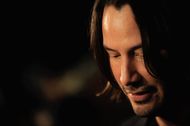
Keanu Reeves has quietly questioned how Hollywood prioritizes profit over creativity. He has chosen roles in independent films because he values artistic freedom over commercial success. Reeves has avoided major franchise roles when they did not align with his interests. His decisions show his desire to focus on meaningful storytelling instead of blockbusters. Reeves' career strikes a balance between artistic integrity and profit-driven industry, earning respect from fans and professionals for his dedication to his values.
10) Sean Penn
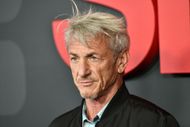
Sean Penn has openly criticized Hollywood's obsession with fame. He has called the industry a culture built around celebrity and has expressed frustration with its superficial nature. Penn has chosen to work on smaller films with deeper political or artistic messages instead of commercial hits. His choices reflect his belief in filmmaking as a tool for genuine expression rather than just entertainment. Penn's criticisms sparked debate over whether Hollywood should prioritize meaningful art over commercial success.
11) Jessica Alba

Jessica Alba has talked about the struggles she faced as a Latina actress in Hollywood. She has spoken about the lack of diversity and the pressure to fit into narrow beauty standards. These expectations often push women of color to the sidelines. Alba has shared how this limited representation affected her career and made her fight for more inclusivity. Alba's experiences highlight the systemic barriers Latina actresses face, urging discussions about improving representation and breaking down industry rigid beauty ideals.
12) Marlon Brando
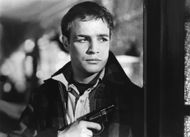
Marlon Brando became known not only for his acting but also for his criticism of Hollywood's treatment of Indigenous peoples. In 1973 he refused to accept the Best Actor Oscar for The Godfather. He sent Sacheen Littlefeather, an Apache actress, to decline the award on his behalf. This action was a protest against the way Hollywood portrayed Native Americans and their mistreatment. Brando's protest sparked filmmakers to reconsider their representation of Indigenous communities, marking a pivotal moment in the fight for better representation in Hollywood.
13) Cole Sprouse

Cole Sprouse has openly criticized the way Hollywood exploits child actors. He has shared how young performers are often overworked and placed in unhealthy environments. Sprouse has talked about his own experiences and how they made him step away from acting for a time. He has also emphasized the need for better protections and mental health support for child actors. By speaking out, Sprouse has pushed for changes that could create a safer and healthier industry for young performers.
14) Mo'Nique
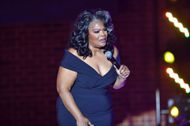
Mo'Nique has spoken out about being blackballed in Hollywood after she won an Oscar for her role in Precious. She said she was offered low pay for the film and refused to do unpaid promotional work. After this decision, she was labeled as difficult and faced fewer opportunities. Mo'Nique's story has highlighted the unfair treatment of Black actresses and the lack of respect they often receive. Her actions have sparked important debates about pay equity and fairness in the film industry.
15) Angelina Jolie

Angelina Jolie has openly spoken about the problems women face in Hollywood. She has criticized the lack of meaningful roles for women and the way stories often rely on stereotypes. Jolie has also addressed the power imbalance in the industry that allows abuse to happen. In 2017 she shared her own experience of being harassed by Harvey Weinstein. She used her voice to support the #MeToo movement and called for change. Through her work as a filmmaker, Jolie has focused on telling stories about marginalized communities.
Love movies? Try our Box Office Game and Movie Grid Game to test your film knowledge and have some fun!
